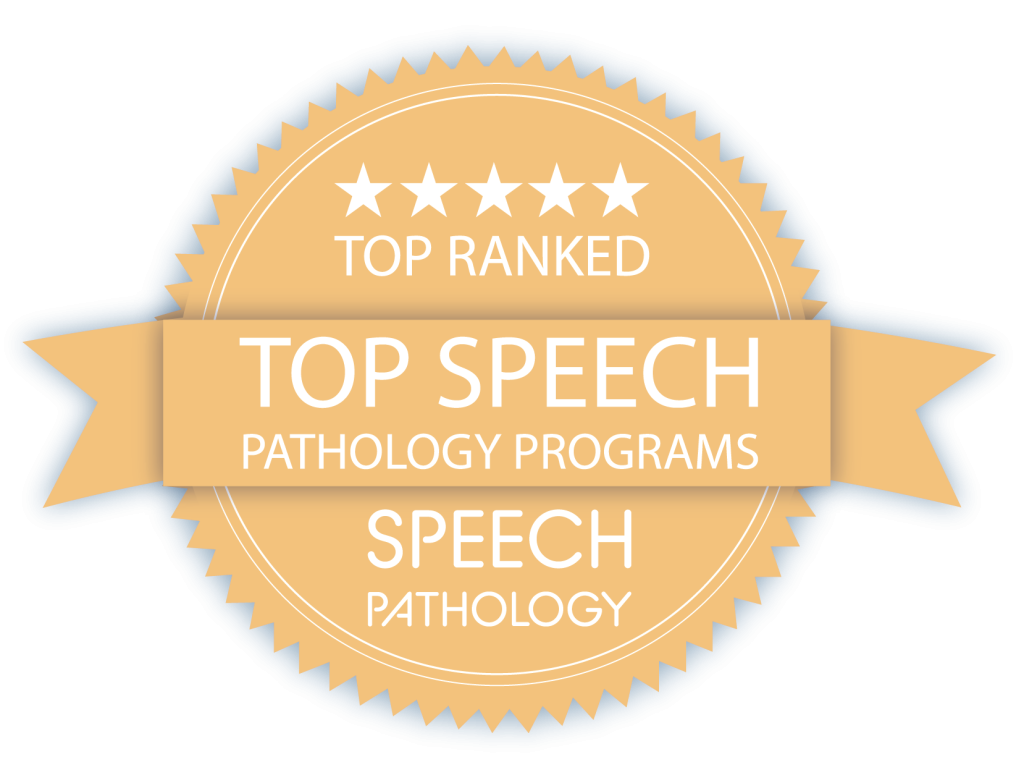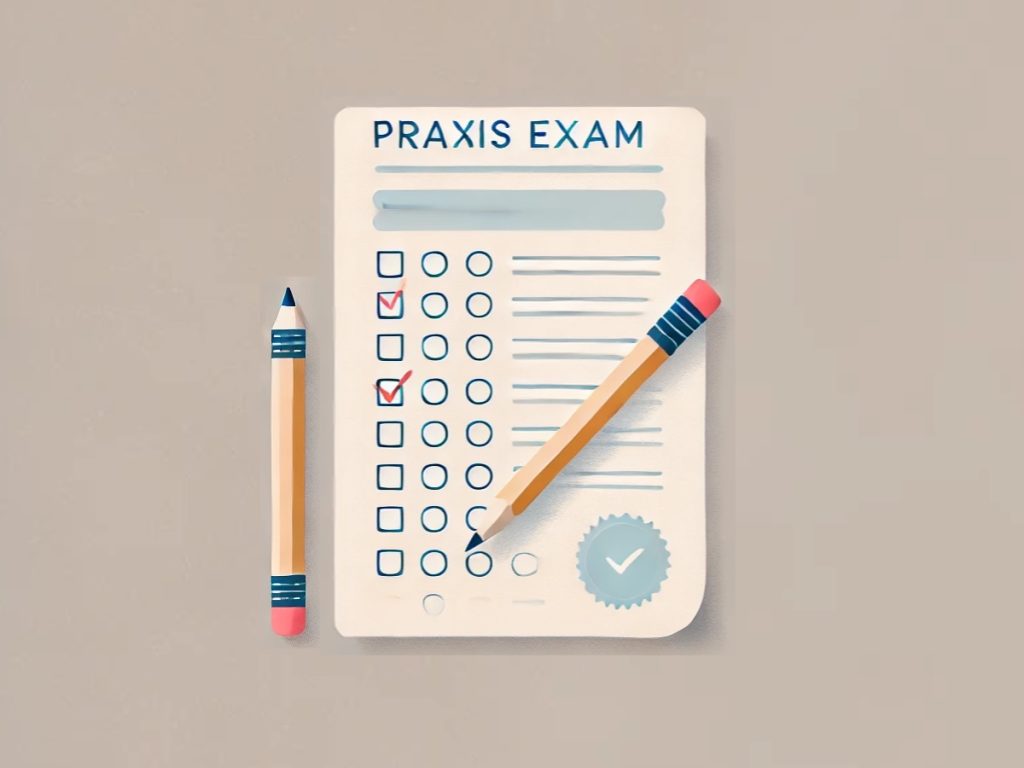Last Updated
April 16, 2025Written By
Elizabeth Monroe, M.S., CCC‑SLPSeveral great level SLP programs (bachelor’s, master’s, doctorate) can prepare you to become a licensed Speech-Language Pathologist. There are a number of ASHA accredited programs available at Georgia State, University of Georgia, University of West Georgia, Valdosta State and Georgia Southern. These programs provide a relatively good balance of classroom learning and clinical experience as well as some rather specific features that are particularly well suited to the diverse population of Georgia. Most speech pathology programs offer a lot of practical training and through internships and special classes students can get some experience working with the pediatric population as well as some more interesting populations, for instance, the forensic population.
In addition, Georgia is famous for the low cost of living; the in-state tuition at the public universities is very low compared to that of other states which makes it a very cost effective choice. It is a very supportive academic environment, the faculty is very approachable and there are a lot of clinical sites – from big city hospitals to small rural schools which will give you a very diverse and practical experience. For those who are looking for both quality and cost effectiveness as well as some specific features of the local context, Georgia could be considered as a perfect place to start and develop your practice in speech-language pathology.

Choosing the right speech-language pathology program in Georgia just got easier. Our rankings focus on what truly matters—outcomes, clinical training, and academic quality. speechpathology.org helps speech-language pathology students in Georgia compare the best schools. Find out how we rank them at speechpathology.org/rankings-methology.

Athens, GA - Public 4-Year - uga.edu
Campus Based - Visit Website
University of Georgia's BSEd in Communication Sciences and Disorders provides a competitive undergraduate foundation for speech-language pathology and audiology careers. This selective program admits 60-80 students annually through a cohort model requiring minimum 3.4 GPA. The comprehensive curriculum covers human communication anatomy, neurology, development, and disorders. While the description doesn't specify ACT/SAT requirements, the competitive admission suggests standardized testing may be considered. The program specifically prepares students for graduate-level training through rigorous coursework focused on professional clinical issues and communication sciences fundamentals.
Campus Based - Visit Website
The University of Georgia's PhD in Communication Sciences and Disorders prepares students for academic, research, and clinical leadership through an individualized curriculum. This evidence-based program emphasizes mentored research, teaching, and clinical supervision opportunities with renowned faculty. Core requirements include advanced statistics, computer science, and dissertation research. Admission requires a master's degree and minimum 3.0 GPA. While no specific entrance exam is mentioned, international students must meet English proficiency requirements. The four-year full-time program offers financial aid and assistantships to support doctoral candidates pursuing specialized careers in communication sciences.
Valdosta, GA - Public 4-Year - valdosta.edu
Campus Based - Visit Website
Valdosta State University's Bachelor of Science in Education in Communication Disorders provides a foundational education in speech, language, and hearing sciences. Students engage in hands-on learning using on-campus therapy rooms and a clinic, developing skills for diverse age groups. This 126-credit program supports pathways to advanced degrees and careers, with no ACT or SAT required for admission.
Campus Based - Visit Website
Valdosta State University's Master of Education in Communication Disorders equips students for speech-language pathology careers through rigorous coursework and clinical practice. This ASHA-accredited program emphasizes evidence-based diagnosis and intervention techniques applicable in medical and educational environments. It integrates research methods and prepares graduates for state licensure and certification, with no entrance exam required.
Carrollton, GA - Public 4-Year - westga.edu
Campus Based - Visit Website
The University of West Georgia's Bachelor of Science in Education with a Major in Speech Pathology serves as a comprehensive pre-professional foundation for students aiming to enter communication sciences and disorders. This campus-based program delivers rigorous coursework covering speech, language, hearing anatomy, and communication disorders, while fostering clinical observation skills and assessment techniques. It prepares students for graduate study with a strong academic background, featuring flexible course delivery and affordable tuition at the Carrollton campus. As a bachelor's level program, it may require ACT or SAT entrance exams, though specific requirements should be verified with the university.
Atlanta, GA - Public 4-Year - gsu.edu
Campus Based - Visit Website
Georgia State University's Master of Science in Communication Sciences and Disorders is a CAA-accredited program that trains students to become speech-language pathologists through a competitive admissions process requiring a minimum 3.0 undergraduate GPA. The program offers two- or three-year tracks with flexible enrollment and includes prerequisite courses. Applications are due December 1st, and no entrance exam is required, making it accessible for aspiring professionals. Additional requirements include three recommendation letters, a goal statement, and an interview in February, providing a strong clinical and academic foundation.
Campus Based - Visit Website
Georgia State University's Ph.D. in Communication Sciences and Disorders prepares students for research and academic careers, focusing on urban communication disorders. The program requires 51 semester hours, including research coursework and a dissertation, with full-time or part-time options for flexibility. Admission mandates a master's degree, GRE scores, and a strong academic record. This program emphasizes teaching and research in speech-language pathology, catering to those aiming for university-level positions in the field.
Demorest, GA - Private 4-year - piedmont.edu
Campus Based - Visit Website
Piedmont University's Master of Science in Speech-Language Pathology is a comprehensive two-year residential program that transforms students into skilled clinicians through innovative curriculum and dedicated faculty mentorship. It offers flexible paths, including a combined 5-year BS/MS track, with small cohort learning and clinical practicum each semester. Students gain evidence-based expertise, externship opportunities, and preparation for professional certification. The program is a candidate for CAA accreditation and requires a 3.0 GPA minimum. No entrance exam is mentioned as required.
Augusta, GA - Public 4-Year - augusta.edu
Campus Based - Visit Website
Augusta University's Master of Health Science in Speech-Language Pathology is a comprehensive 72-credit, full-time program delivered over six semesters with 95% face-to-face instruction. It emphasizes extensive clinical training through multiple rotation sites, requiring at least 400 clinical hours and utilizing state-of-the-art simulation centers and medical equipment. The program fosters interprofessional learning and prepares students for ASHA certification, Praxis exam, and state licensure, with no GRE required. Graduates are equipped to address workforce shortages with advanced competencies in diverse healthcare and educational settings.
Statesboro, GA - Public 4-Year - georgiasouthern.edu
Campus Based - Visit Website
Georgia Southern University's Master of Science in Communication Sciences and Disorders offers a 56-credit, campus-based program on the Armstrong Campus in Savannah, preparing students for ASHA certification and clinical fellowships. The curriculum emphasizes evidence-based, team-oriented training in assessing and treating communication disorders across all age groups. With a competitive admissions process requiring a 3.0 minimum GPA, 25 clinical observation hours, and a January 15th application deadline, the program waives the GRE for Fall 2024 entry, providing a streamlined path for aspiring speech-language pathologists.
Georgia provides adequate choices for both the bachelor’s in speech-language pathology and master’s degree. The Bachelor of Arts in Communication Sciences and Disorders is an introductory level pre-baccalaureate program. It provides the basic coursework in speech, language and hearing, and further enables the student to pursue graduate study. The typical admission includes high school transcripts, prerequisite courses, and in some cases, letters of recommendation. Graduates may work as rehabilitation aides or research assistants but they are not yet licensed to practice.
A master’s degree in SLP is a license to practice as a Speech-Language Pathologist. These ASHA accredited speech pathology programs offer advanced coursework and clinical practicum hours. The admission requirements are a bachelor’s degree in Communication Sciences and Disorders or completion of specified prerequisites. Many programs in Georgia including Georgia State and University of West Georgia do not require GRE. Cost is a key factor. The in-state tuition for the bachelor programs is between $3,200 and $10,500 per semester and master’s programs are relatively affordable with some for residents costing less than $7,000 per year. The career earnings for the licensed SLPs are much higher than those of the bachelor level positions which makes Georgia a good option for the quality of education as well as the financial value and the career opportunities available.
Within Georgia you will find numerous excellent doctoral programs for speech-language pathologists to choose from which include both the PhD and SLPD degrees. A PhD is ideal for those who have an interest in research, teaching and being a scholar. A master’s degree, research experience and in some cases GRE scores are usually needed for admissions. Some of the jobs that Phd graduates can take are teaching, leading clinical research, or work in program development and policy making. Research assistantships and stipends are sources of funding that can help pay for tuition and increase the long term salary in academic and high level research positions.
On the other hand, the SLPD is meant for practicing clinicians who want to expand their theoretical knowledge and assume management positions in practice. Master’s degree in speech pathology or its equivalent, clinical experience is the admission requirement for SLPD programs. This degree enables them to become leading clinical supervisors, advanced hospital administrators, school administrators or owners of private practices. Compared to PhD tracks, SLPD programs have higher tuition and less frequent funding, but given the clinical career path, the salaries are high and the return on investment is quick. As a result, the Georgia doctoral programs offer you a choice between a research or practice oriented future based on your goals in the speech-language pathology practice.
To become a licensed Speech-Language Pathologist in Georgia one must meet education and clinical experience requirements. First, you must hold a master’s degree from an ASHA-accredited SLP program. A typical degree in Speech Pathology will have a minimum of 75 semester credit hours of coursework in speech-language pathology and 36 of those must be at the graduate level. Your graduate program requires about 400 clock hours of clinical practicum supervision in addition to coursework. The training involves both observation and direct client interaction, resulting in practical experience under the supervision of experts.
After graduation, you must pass the Praxis exam in Speech-Language Pathology to prove your competency. Most programs require this exam during your final year of study or you complete it during your clinical fellowship. The next step after your master’s degree requires you to complete a Clinical Fellowship of 1,080 hours. The postgraduate requirement can be met through 9 months of full-time work at clinical settings guided by a licensed professional after obtaining your master’s degree. Once these requirements are fulfilled, you submit your application to the Georgia Board of Speech-Language Pathology & Audiology with your official transcripts, Praxis scores and your fellowship hours documentation. If you wish to work in public schools, you will require an educator certificate which you can obtain from the Georgia Professional Standards Commission. The final step is to complete 20 hours of continuing education every two years to maintain your license.
If you are looking for a fast way to get your SLP licensure, Georgia has good options available for those who want to participate in accelerated Speech Pathology programs. Every student starts by obtaining an undergraduate degree from Communication Sciences and Disorders before moving towards graduate study. Some schools including Piedmont University offer a five-year combined bachelor’s and master’s degree program which allows you to finish both degrees in five years. Studying this way is traditional in some educational paths and will save a student a year compared to other educational paths.
Master’s programs in Georgia are typically two years in duration when completed. Both Georgia State University and the University of West Georgia design their master’s program coursework and clinical practicum to meet the 400 clinical hours of licensure requirements in an efficient manner. These programs provide very practical, first-hand learning experiences in order to get you as ready for the job of a speech-language pathologist as quickly as you can be without filling your time with superfluous activities.
| School Name | Highlights | Retention & Grad Rates |
|---|---|---|
| University of Georgia |
|
|
| Georgia State University |
|
|
| Georgia Southern University |
|
|
Georgia is a great place to look for affordable SLP programs. Public universities such as Georgia Southern and Valdosta State offer Communication Sciences and Disorders majors at the undergraduate level and in-state tuition is usually between $3,200 and $10,500 per semester. This reduces the chances of incurring high educational costs, which would have an adverse effect on the ability to build a strong academic foundation.
Some of the good masters programs in speech pathology include Georgia State University and the University of West Georgia in view of the costs. For instance, Georgia State University charges its in-state students a tuition fee of $1,855 per semester and on average, the total tuition fee for a master’s program is about $12,000 to $15,000. The two work to ensure that the affordable tuition is complemented by good clinical training which means that you will get a lot of practical experience without having to incur too much expense.
If you are planning to work towards a doctorate in speech pathology then the PhD or SLPD programs in Georgia may be costly, but it is not the case for many doctoral students who get assistantships or fellowships to cover the tuition. Thus, public institutions of higher education in Georgia provide a good education at a relatively low cost and practical clinical training to help you get started in speech-language pathology without having to sink into debt.
| School Name | Highlights | Annual Estimated Tuition & Fees |
|---|---|---|
| University of West Georgia |
|
|
| Valdosta State University |
|
|
| Augusta University |
|
|

If you are interested in pursuing a career in SLP and have been researching licensing requirements or are simply interested in learning more about SLP

Dyslexia, a common learning difference affecting reading, writing, and language processing, can present unique challenges for students transitioning from high school to college. Fortunately, a

If you have ever been researching speech-language pathology careers and come across the words ‘speech pathologist’ and ‘speech therapist’, you might wonder if they are

If you are pursuing the position of a speech-language pathologist, then you may have heard of the Praxis exam from your professors, classmates, or even